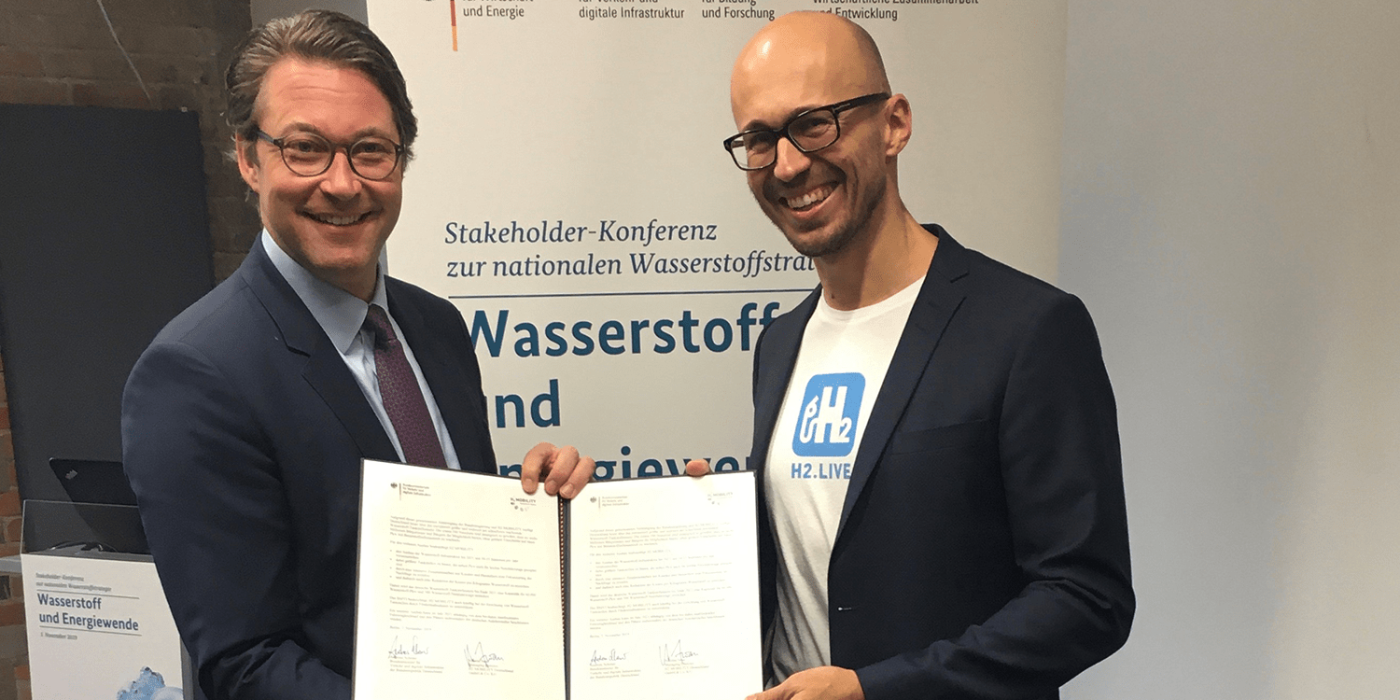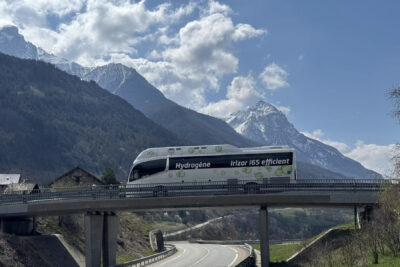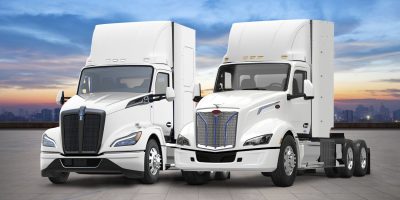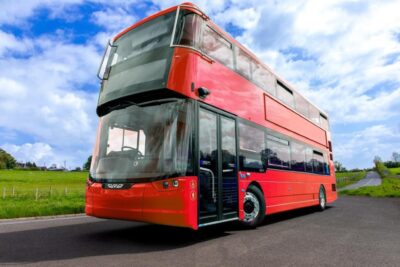Germany expands hydrogen infrastructure
The German Federal Ministry of Transport and H2 Mobility have signed a declaration of intent to further expand the hydrogen infrastructure in Germany. It follows on from the first phase of expansion, which is to be completed by mid-2020 with 100 hydrogen filling stations.
The agreement provides for an additional 30 H2 stations, as H2 Mobility announced in a press release. The new stations will be made bigger than their predecessors: If the capacity at most H2 stations today is sufficient to refuel 40 to 50 cars per day, in future about three times as many vehicles can be supplied at one station. This means that by the end of 2021 around 60,000 fuel cell vehicles could be refuelled in Germany, depending on the vehicle type.
Until now, H2 Mobility had concentrated on Hamburg, Berlin, Rhine-Ruhr, Frankfurt, Nuremberg, Stuttgart and Munich as well as on the connecting axes when setting up the first 100 filling stations. It is not clear from the press release whether these regions will be re-densified or whether new areas will be developed.
With this expansion, the operator wants to prepare itself for the market ramp-up. In addition to the Hyundai Nexo, Toyota Mirai and, in limited numbers, the Mercedes-Benz GLC F-Cell, the German companies StreetScooter and Faun have also announced hydrogen models in the near future.
Commercial vehicle and bus manufacturers have a number of fuel cell vehicles ready to go. A consortium of hydrogen and bus companies, including Everfuel, Wrightbus, Ballard Power Systems, Hexagon Composites, Nel Hydrogen and Ryse Hydrogen have united to create H2Bus. Together, they intend to popularise the technology across the European continent. Dutch bus maker Van Hool Exqui City18 Fuel Cell was awarded the Grand Award Bus at Busworld, and Polish-Spanish bus company also has fuel cell buses on the market. But in Germany, Daimler, who has had fuel cell buses ready to go since at least 2010, seems to want to inhabit this area. The carmaking giant and says it may not be bringing its fuel cell buses to market for another 20 years. Hyundai and Toyota are continuing to invest in fuel cell vehicles, the former with a number of heavy-duty trucks.
Recently, H2 Mobility built the 76th public hydrogen filling station in Germany. According to the company, hydrogen can be refuelled in three to five minutes for ranges of 500 to 700 kilometres. “The Federal Government is preparing a comprehensive hydrogen strategy,” wrote government spokesman Steffen Seibert. “It will also be of outstanding importance for the mobility of tomorrow.
There are conflicting opinions on the environmental balance of fuel cell technology and the costs of mass use in passenger cars, while a focus on other vehicle types is neglected. In a recent strategy paper, KIT Professor Martin Doppelbauer took a clear stance in favour of battery-electric technology when it comes to cars and described them as “the only viable path to an emission-free and low-CO2 future for individual mobility”. Fraunhofer ISE had come to other conclusions in July (on behalf of H2 Mobility). Here the focus on individual mobility is exactly the point or rather, the distraction. Generally, fuel cell technology is understood as the most viable option for heavy-duty and long-haul vehicles. Germany seems a little stuck on infrastructure for passenger cars while neglecting the potential for fuel cell fleet growth in other sectors – most particularly in public transport and logistics.





1 Comment